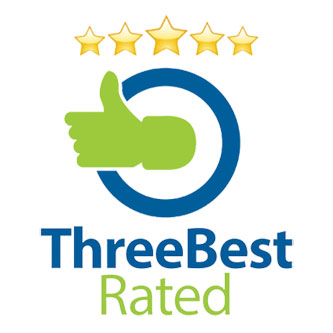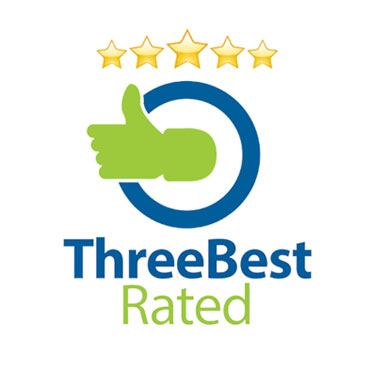
Nov 9, 2020 | Reno SEO
Pop Quiz: Why is it that, when you key in a search query into your web browser, some websites appear higher up in the list of sites returned, while others come in way down the pecking order?
The answer: A neat little process called Search Engine Optimization (SEO).
What is SEO?
As highlighted by our pop quiz question, SEO is what goes on behind the scenes in your webpages and websites. When done right, SEO is responsible for ensuring that your web pages rank higher-up in organic search results than your competitor’s.
Although search engines like Google consider a long list of factors to determine proper site optimization for search, as a website owner, here’s what SEO means to you:
- Your site is visible to search engines
- It is structurally sound – well laid out, with no broken links or missing pages
- It has content that search engines locate quickly when users query for them
- Your pages rank higher (for relevant content searches) than your competitors
- There’s content that users find useful and informative
- The site makes good use of social signals (Facebook, Twitter, Instagram etc.) to promote it
- You have high-quality backlinks that point back to your site
- You use optimized images across the site
The most visible SEO sign is that customers, prospects and casual visitors find your website easily and efficiently, giving you the opportunity to sell your products and services to them. These are just a tiny manifestation of what SEO means to you. However, when SEO experts get down to work on site optimization, they’ll consider these, and a list of over 200+ other factors, when creating highly optimized websites.

Why do I need SEO?
Consider the analogy of a bricks and mortar candy store from “back in the day”. Although the shop made the best candies and sweets in town, unless their name appeared in classified ads in newspapers and the TV, few buyers would show up at the store. The same is true with today’s digital storefronts – i.e. your online presences.
Owning and successfully operating an online business requires a website – and other online presences, like social media pages. But it also means you need to promote that site online, so current and prospective clients might find you whenever they have the need for your products or services.

MARKETING YOURSELF
More importantly though, is the marketing aspect of an online business. You don’t just want (current) clients who know your business, or those who are actively considering buying (prospects) your product, to find your website online. It’s important to also “convert” casual visitors – who may not initially want to buy – into paying customers. And that’s where SEO comes in!
As an online business owner operating in a highly competitive marketplace, you need SEO if you:
- …want your business to survive and thrive
- …are looking to expand in new markets
- …care about having more online visibility that your competition
- …are looking to increase traffic to your website
- …want a consistent stream of leads generated from that traffic
- …are always looking to convert many of those leads to paying clients
- …also care about generating a lot more local sales from among your city and community
So, what does SEO do to give you all (and more!) of the above? Well, here’s the simple truth about why SEO matters to you. You need SEO because:
- 68%[1] of all identifiable web traffic happens as a result of web searches
- 3%[2] of all web traffic come from organic searches
- 76%[3] of people who searched for a product/service using a smartphone have visited a nearby business within one day of conducting their search
- SEO[4] results in 1000% plus more traffic than other strategies, including social media
- 60% of online businesses say that in-bound SEO delivers them a higher quality of leads tan do other lead generating strategies
- SEO results in closing 14.6% of all online deals
As an online business owner, or someone who manages a website, what do all these numbers mean for you? Depending on what business you are in, and what online marketing strategy you pursue, these statistics might mean different things to various businesses. However, the one common take-away from these figures is this:
The world has around 2 billion websites on the internet, of which approximately 400 million are currently active[5]. If you run an online business, then you need your website “found” among the vastness of other websites out there. And for that to happen, you need SEO!
STANDING OUT AMONG THE CROWD
And what’s the most obvious way for anyone to find you in a crowded space? It’s if you step forward right at the front of the crowd and shout “Look at me…I’m here!”. Unless you do that successfully, the thousands of other competing websites in your domain may drown your presence. Your clients and prospects won’t know that you exist!
You need SEO to help you stand out in the crowd. And how does SEO make that happen?
To explain that, lets look at one more piece of statistics:
- 60% [6]of people looking for products and services, won’t scroll past the first screen of their Search Engine Results Page (SERP).
To put that in perspective, lets assume a search term for your product or service results in 300 listings. Let’s also assume that each page comprises of seven listings. Here’s how the math works out:
There will be 43 web pages that meet the criterion of the searchers query. Depending on the device (desktop, tablet, smartphone) the searcher is using, those pages may span over more than 43 screens.
Assuming the searcher finds content on the page pretty useful, they’ll spend about two minutes (“dwell time”[7]) reading key content on the page. That’ll take him/her 86-minutes (43 pages x 2-minutes per page) to go through all the search results returned. That’s nearly an hour and a half of their time! In today’s busy world, no one has that much time to spend reviewing search results pages!
Typically, searchers will snoop around the first page of the site and, if they can’t find something interesting, they’ll quickly go back to the crowded SERP to sample the next site/page…and so on. This happens for each of the search results listed. And, in 60% of cases, searchers will find what they’re looking for without needing to go to page 2 of the SERP.
The bottom line: If your web site doesn’t appear listed high-er up on page 1 (or at least the first few pages) of an organic search, it’s likely no one will ever find you among a crowd of web sites that’s 300 pages large. And you need SEO to help you rank higher in organic search results so you can stand out amongst the crowd of competitors.
WHY SEO?
SEO is the best way to target specific audiences online, so you can make your pitch directly to them. As a result, a follow-up question is: Do I have to continue doing SEO? The answer is – YES! Doing SEO isn’t easy – given the frequent algorithm updates that search engines like Google continually implement.
If you want your site to continuously rank higher in search engine results pages (SERPs), and are interested in a constant flow of traffic, then you need SEO. Not just a one-time SEO effort, but one that keeps up with search engine updates, and with your competitors!

How to hire an SEO expert
Hiring the right candidates (contractors, service providers, agencies) for any role is a daunting task, and it’s no easier when it comes to hiring an SEO expert. But when it comes to all things SEO, the hiring decisions are a lot more critical than say, hiring a tradesperson or a graphics designer. Here’s why you need extra diligence when partnering with an SEO expert:
- SEO impacts your bottom line – the fewer leads you convert the less revenue you’ll earn
- SEO speaks directly to your customer base – if your website isn’t targeting the right clients, you’ll likely not get as many leads as you’d like
- SEO impacts your websites’ standings with search engines – SEO-gone-wrong can easily get your website on a “black list” and cripple your online marketing operations for a significant time
To avoid these, and many other challenges that we’ll highlight shortly, your decision to hire an SEO expert requires a significant amount of extra diligence – more so than you exercise for other roles.
ASSESSING THE EXPERTS
Here are 3 questions to ask and 6 additional skills to inquire about, to ascertain whether the SEO expert is right for you:
- How do you keep abreast of SEO changes, trends and developments?
When you hire an expert, you want someone who always stays current with all thing’s SEO – not someone that read a few books a long time ago and only applies that knowledge to all her/his projects. Take note of news sites, journals, podcasts and tech review forums they talk about, and check those sources out (at your convenience) to validate what they said
- Look at these 3 pages on our website. They currently rank #45 and #65 for their respective keywords. Can you provide us 2 onsite-optimization suggestions that’ll help improve our ranking/visibility?
This is a trick question, because there’ll likely be a different answer offered by every SEO expert that you speak to. However, look for some generic tips that any SEO-savvy professional should offer. These include:
- Ensuring your URLs are meaningful, readable and succinct
- Removing elements from the page that slows it down – especially on mobile devices – like heavy graphics, large videos and unnecessary bells and whistles
- Adding links to external websites with content relevant to your domain/niche
- Re-writing content for human consumption, not for BOTS and algorithms
- Inviting other trustworthy partner websites to link to your content
- Checking to ensure all your meta data (tags, descriptions) is in order
Can you provide me 3 URLs of websites you assisted with SEO, and what were the outcomes of your efforts?
The objective of this evaluation exercise is to establish what the expert has done for other online marketers. Ideally (but not necessarily) the examples offered should be in your marketing niche.
Look for information that indicates trends that a clients’ website went from #30 to #7 in 9 days; or that the site saw 56% traffic increase in 2-weeks; or that sales shot up by 110% within 2-months of the engagement concluding.
Now that you are convinced, through performance-based metrics, that the expert knows what she/he is talking about, it’s time to assess whether they have other skills that’ll help them fit-in with your team.
SKILLS TO LOOK FOR
A good SEO expert is not necessarily one that can only code like a nerd! There are other soft skills that are required to make the expert (or the SEO agency) work well with you and your team. Without these additional skills, it’s highly likely that your relationship with any SEO expert you hire will be short-lived.
To avoid mis-communication, misunderstandings and unintended consequences of any future business collaboration, verify that the expert has:
- Demonstrable knowledge of SEO principles and practices
- Excellent copy-writing
- Exceptional communications skills
- Good project management abilities
- The ability to work with cross-functional teams within your organization (Marketing, Sales, Finance, Senior management)
- Strong reporting and analytical skills (to monitor, measure, track and report SEO metrics)
Often, when interviewing an SEO agency, you’ll be speaking with a single person – not an entire organization. It’s important to therefore remember: When embarking on your hiring initiative, don’t forget that SEO is typically a team effort – it often requires skills that more than a single person may have.
Therefore, when assessing the talents and capabilities of your SEO expert, don’t focus on the individual, but also on the team behind them. It is the collective skills and experience of the combined team that you’ll be hiring, and not just the individual you are speaking to. On that note, if the agency is not a one-person-entity, it may not be out of bounds to ask to speak with key individuals who will be involved with you and your team.
DON’T FORGET…
- Before casting a wide net to seek SEO candidates, ask around among your network of peers and business contacts to see if they can recommend some names
- Give local SEO experts greater weightage in your decision-making criteria. Why? Because it’s always more convenient to meet, communicate and coordinate with them as opposed to someone that’s on a different continent or different time zone
- Check if your SEO prospects offer freebees – like Lunch-and-Learn sessions, free initial consultations and mini website audits. Taking advantage of these offers is a great first step in getting to know your future SEO expert more closely
As you map your online marketing strategy, hiring not just any SEO expert, but the right one, is a key milestone for your company. Using a written test to select an SEO expert is not a good idea. Because of what’s at stake, ask for practical, verifiable demonstration of their accomplishments.
More importantly, ensure that the agency’s team and yours are a good fit. If they can’t deliver what you are looking for, or if their team and yours can’t produce synergies, then they’re probably not the right fit for your company.

What I can expect with good SEO services?
Earlier-on in this eBook, we spoke about everything you might expect from SEO. That might include, but not be limited to, higher SERP rankings and more traffic to your website. But what can one expect of a good SEO service provider, in terms of the value-for-money proposition to you?
Well, here are six things that most professionals deliver as part of a well-rounded SEO offering:
- A better understanding of your target audience
To provide the best SEO service applicable to your business, the agency you choose to work with must first understand who your audience is. They do this by talking to you to get a sense of what your products or services are, and whom you market them to.
- A clear sense of your business objectives and goals
The type of SEO strategy that’s best for you depends on what you are trying to accomplish through your online presence. You should therefore expect your SEO partner to help you understand what your business objectives are:
- Are you looking to get more traffic?
- Do you want to rank higher than a specific competitor?
- Should your SEO efforts result in x% increase in revenue?
- Is it your desire for your website to become an “authority site” within your niche/domain?
Together with you and your team, the chosen SEO expert will help you get a clear sense of these and other similar questions.
- A deeper appreciation for your competition
Most experienced practitioners won’t offer specific SEO advice until they have a clear idea of who your competition is, and what SEO tactics and strategies they (the competition) employ. Expect your SEO service provider to work with you to draw a clear profile of the competition, and map your current online ranking against the competition, so they can identify gaps between you and your industry peers.
- A comprehensive deep dive into your existing website
In preparation to take on the competition – now that you and your SEO partners have a clear idea of who they are and what they’re doing – the SEO expert conducts an exhaustive site audit. This exercise gives them a sense of where your website stands in terms of various factors, some of which include:
- Layout
- Construction
- Ease of navigation
- Messaging
- Trust-worthiness
- Professionalism
- Page load times
- Accessibility
- Responsive design
- Social media-friendliness
They’ll also take a close look at the advantages (competitive edge) you enjoy over the competition, and specific shortcomings (e.g. content deficiencies) in your current website. This process gives your SEO expert an insight into what specific SEO strategies and tactics they’ll need to implement to accomplish the goals and objectives set out for the project.
- Preliminary recommendations and suggestions
Before the expert knits together a comprehensive SEO strategy, they will likely discuss their preliminary recommendations and suggestions with you. Since they now know your business environment, your website and your competition in intimate detail, they’re able to offer concrete recommendations on what you need to do to win the online marketing battle.
At this stage, however, many clients might disagree with some suggestions, or consider other suggestions (e.g. revamp the entire website) too expensive and time consuming. A good SEP professional will, therefore, take that feedback into consideration when putting the final strategy into place.
- A comprehensive SEO strategy
The most important deliverable you should expect of a good SEO service provider is a comprehensive SEO strategy, and the tactics to be employed when implementing that strategy. This is the overarching document that’ll take your online marketing businesses’ goals and objectives, and transform them into reality.
While each SEO agency might have different templates of their strategy, three most common components you must expect to see include:
- On-site Optimization: This focuses on optimizing the content, layout and structure of your site. Because of how SEO works – by having search engines crawl and sniff through your website – you don’t want any SEO-unfriendly characteristics in your site.
Elements covered in this part of the strategy include Title Tags, Meta descriptions, Navigation, Internal links, Unique and relevant content, Speed and security – amongst other factors.
- Off-site optimization: This part of the strategy covers factors that help you establish your site as an authority on external platforms and online presences (Blogs, websites, social media forums). For SEO purposes, search engines like Google give great weight to authoritative inbound links into your site, from other respectable, credible websites in your niche.
The more credible inbound links you receive from external sources, the more authoritative your site appears to BOTS, Spiders, Creepers and Crawlers – search engine algorithms. Influencer marketing, guest posting and syndication are some tactics that a good SEO expert may propose.
- Ongoing SEO measures: This part of the SEO strategy will contain other relevant steps, such as continually refreshing your content, necessary to stay on top of the SEO list. It may also propose constantly working with other sites (credible ones!) to guest post or host unique and informative content and links
The strategy will include all relevant steps, implementation timelines, and metrics to accomplish and measure success. Expect most professional SEO experts to offer FREE (though not exhaustive or comprehensive) site audits. They’ll also offer limited-time FREE initial consultations, and may even periodically host FREE lunch-and-learn sessions.
At the end of your SEO project, what should you expect success to look like? Well, you should expect better organic traffic, more leads, more conversion, higher page/site ranking and, most importantly, improved revenue from sales.

Then what?
Your SEO initiative will likely not push you up to #1 in SERPs for your specific keywords and search queries (unless you are already at #2!). SEO takes time to bear fruit – sometimes as much as three to six months. Then what? Then, there’s no letting up! The best SEO strategy is a continuous one. Even if you reach #1, without ongoing SEO efforts, someone else could well knock you off your high ranking!
Hello there! Have questions? Call or text me anytime Monday through Saturday 8 am to 8 pm PST. I can be reached at 775-870-0488.
Sandy Rowley
SEO Expert
[1] https://videos.brightedge.com/research-report/BrightEdge_ChannelReport2019_FINAL.pdf (page 3)
[2] https://videos.brightedge.com/research-report/BrightEdge_ChannelReport2019_FINAL.pdf (page 2)
[3] https://ahrefs.com/blog/seo-statistics/#top-seo-statistics
[4] https://ahrefs.com/blog/seo-statistics/#top-seo-statistics
[5] https://hostingtribunal.com/blog/how-many-websites/
[6] https://www.smamarketing.net/blog/80-seo-statistics (statistic #9)
[7] https://ahrefs.com/blog/dwell-time/






















